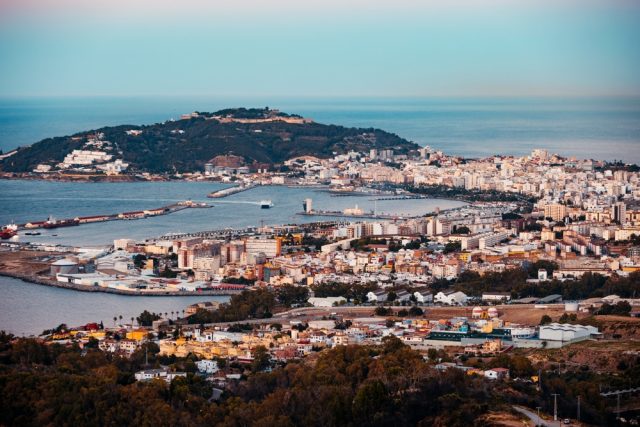
The National Audience of Spain sentenced Mohamed Ali Duas, an MP in the Autonomous City of Ceuta, to prison as part of a counter narcotics operation that spanned the Spanish inland and its North African territories.
Duas is part of the “Movement for Dignity and Citizenship” (MDyC) political party, a leftist organisation linked with Deputy Prime Minister Yolanda Díaz’s SUMAR progressive coalition.
A total of nine people have been arrested by Spanish authorities, including the MP’s brother, his nephew, and two members of Spain’s Civil Guard (Guardia Civil). One close friend of Duas involved in the alleged crimes was given probation.
The men have been charged with belonging to criminal organisations, narcotraffic, and bribery. They have also been charged for crimes against public health.
Duas had served time in the 1990s for another drug-related offense. The MP is also a public employee of Spain’s prison system.
The National Audience said the investigation remains open, but details will remain secret at the moment.
More arrests are expected in the next weeks as the investigation progresses.
The MDyC’s leader, Fátima Hamed, announced the party will gather its Executive Committee this week to discuss the matter. So far, both Hamed and the MDyC have claimed they were not aware of the situation.
Ceuta is a Spanish territory based in the coast of North Africa. It is one of Spain’s two land borders with Morocco (the other being the Autonomous City of Melilla) and it is a major hotspot of diplomatic disputes between the countries.
According to police authorities, the investigation started almost a year ago when they captured a truck carrying some 1.500 kilos of hashish in a town near the Southern Spanish city of Malaga.
Preliminary reports suggested the operation required the use of a network of trucks to distribute the drugs across once they reached the Peninsula after the seabound journey from North Africa.
The results of this operation highlight Ceuta’s growing problem with drug trafficking. On February 3, the National Police detained a woman about to board a ferry destined to Algeciras.
The woman meant to use her three daughters (ages 4, 8, and 17) as mules to carry drugs to the mainland.
The authorities found almost 7 kilos of hashish with them. They also detained the 17-yeal-old daughter.
The trade of hashish is a continent-wide problem with public health implications for several EU member States.
Last November, a joint operation between Spanish and Moroccan authorities seized some 5 tons of hashish in Spain’s Canary Islands.
One gram of hashish cost some 7 euros, and a kilo can raise up to 2.000 euros. Most of the hashish that is consumed in the EU (80%) comes directly from Morrocco and through the Spanish Coast.
Moroccan hashish has been found from Spain and Portugal, all the way North to countries like Norway.
The Moroccan city of Tanger, which is less than two hours away by car from Ceuta, has become the logistical hub for the hashish trade and the lair of Moroccan criminal organisations who profit from this illicit activity.
The drug trade constitutes a high toll, especially for Spanish authorities. Almost one year ago, two civil guards died at sea while trying to stop one of the so-called “narco boats” that cross the drugs through the Strait of Gibraltar.
The Spanish Government reached diplomatic agreements with Morocco to counter the drug trades, after Socialist Prime Minister Pedro Sánchez visited King Mohamed VI last year.
However, the constant cases of criminal activity and endless detentions and seizing of drugs by Spain raise questions about Morocco’s effectiveness and the integrity of its authorities to fight the gangs that control most the lucrative trade.



 Subscribe
Subscribe